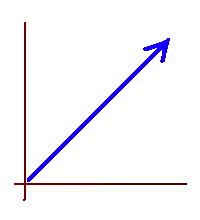Take your time to use the correct set of problem-solving questions
Students often approach math homework problems with the same level of interest and excitement many adults show when preparing their tax returns. They want to get them done, and over with, as soon as possible so they can do something else. Many times, this is the only interest students have in their math problems, just getting them done, and moving on to having some fun with any activity other than math. Ironically, though, this goal turns out to be counterproductive, since you can do something well and fast only when you already know how to do it. More often than not, however, homework is part of the learning process. Typically, when students do homework, they are still learning, still practicing. They have not yet mastered all aspects of the topic at hand. Very often homework problems present students with finer points they have not yet considered. We could say when students do homework they only partly know what they are doing, kind of. So their goal of finishing as soon as possible and go play, only causes them to get the problems wrong, because they use the wrong question: "What am I supposed to do here?" instead of the questions that can successfully lead them to correct solutions: "What do we have here?" "What does this mean?" "What is the question?" and "What can I do?"





No comments:
Post a Comment